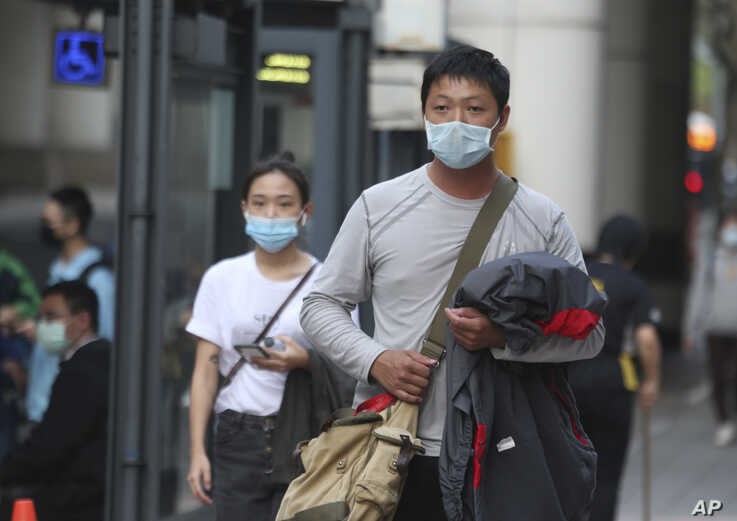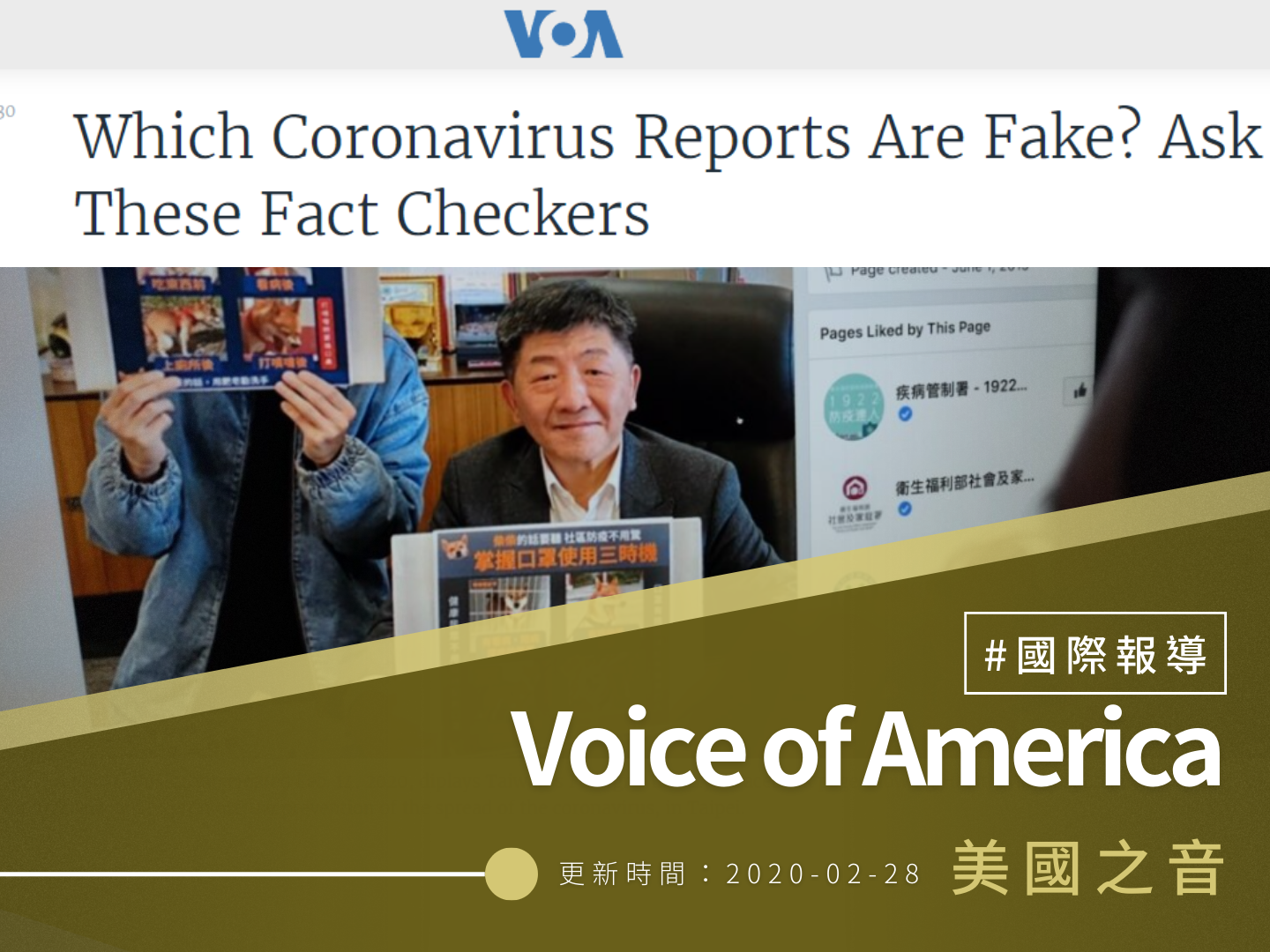【美國之音】Which Coronavirus Reports Are Fake? Ask These Fact Checkers
【2020年2月28日 美國之音/Coronavirus Outbreak】
By Ralph Jennings
February 28, 2020 09:30 AM
TAIPEI, TAIWAN – It’s easy to jump online and find reports saying onions in the home can ward off the coronavirus that has hobbled much of Asia this month or see videos saying hordes of bats living in China spread the disease. Some say Taiwan’s outbreak of COVID-19 has spiraled out of control, though the government reports just 32 isolated cases.
A young nonprofit organization in Taipei has looked into 50 virus-related news items to determine which are fakes. Its staff of five, equipped with internet apps and their own media backgrounds, specializes in knowing truth from untruth in Chinese-language media, including social.
More than 90% of the virus stories they investigated are false, said Summer Chen, chief editor of the organization called Taiwan FactCheck Center.
They found rumors. There were squibs with commercial motives. There were Chinese-planted reports that make Taiwan look bad, Chen said. The two sides are political rivals.
“Of course, some are out to make political attacks like the government, and over the past few days we’ve been hit by internet trolls,” Chen, a former newspaper journalist, said in an interview Friday.
Fake news in the making
Shortly before Taiwanese picked a president Jan. 11, someone used social media to say the coronavirus was already spreading and advised wearing face masks to polling stations, then washing their hands later in case of germs, Chen said. Someone came out this month on social media to advise rubbing sesame oil under the nose to stop the coronavirus spread, she added.
Two media-linked associations started the Taiwan FactCheck Center, and at first it was just investigating two reports per week, either from conventional media or from online. It's recognized by the International Fact-Checking Network and belongs to a Facebook fact-checking platform.
Now they get five reports a day, a surge that started during Taiwan’s sometimes vicious presidential election campaign.
After the election, “we hadn’t even taken a breath and we started working on Wuhan pneumonia,” Chen said, using a local slang term for the novel coronavirus.
 People wear face masks to protect against the coronavirus, in Taipei, Taiwan, Feb. 26, 2020.
People wear face masks to protect against the coronavirus, in Taipei, Taiwan, Feb. 26, 2020.
Before the vote, Taiwan’s government and political figures had talked up Taiwan FactCheck Center as a way for people to vet news they wonder about. The center accepts reports from anyone outside government or politics.
“Anybody can send any kind of information,” Taiwan Foreign Minister Joseph Wu told foreign media reporters at a January 9 news briefing. “We send it to the FactCheck center and can get clarification whether this news is true or false.”
Taiwan FactCheck Center staffers don’t go after the source of fake news but look as far upstream as they can to match content with its origins. The bat video turned out to be from the United States, not China, for example, Chen said.
They can use Google Maps to know whether people really are where they say they are. A mobile reverse imaging app determines where photos might have originated. Results of the checks go on the center’s webpage and its Facebook page. About 10,00 people read each posted verdict.
Pent-up demand for fact-checking
Some 226 organizations in 73 countries specialize in fact-checking, Duke University's Duke Reporters' Lab found last year. But relatively few monitor Chinese-language media in East Asia, Chen said. Mandarin Chinese is the official language of Taiwan as well as China.
Taiwan FactCheck Center has a valuable but tough job, media analysts say.
“In general, it plays a positive role in improving the quality of local news reporting,” said Ku Lin-lin, associate journalism professor at National Taiwan University.
News outlets will welcome fact-check results to know what’s right and wrong, said George Hou, mass communications lecturer at Taiwan-based I-Shou University. But checking accuracy is tough due to the glut of information coming through people’s phones and computers via the internet, Hou said.
“We have social media, we have phones and we have tablets, that’s a good thing but we’re also in an age of extremely chaotic information flow,” he said.







